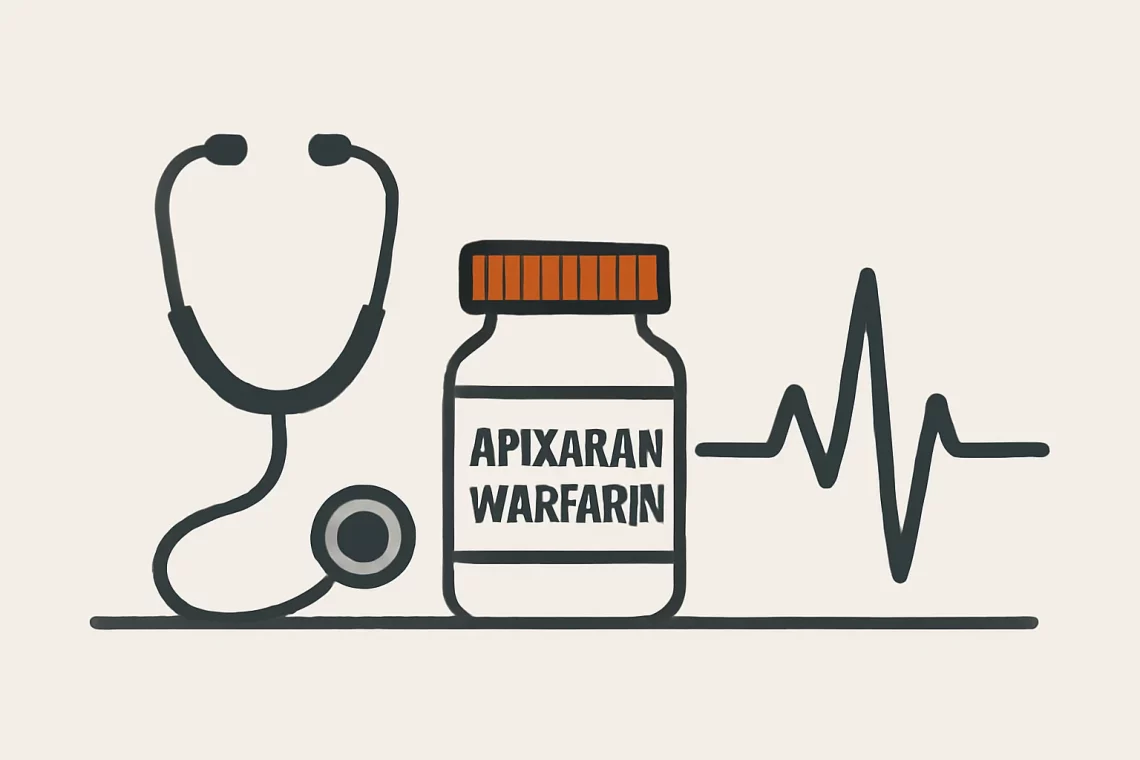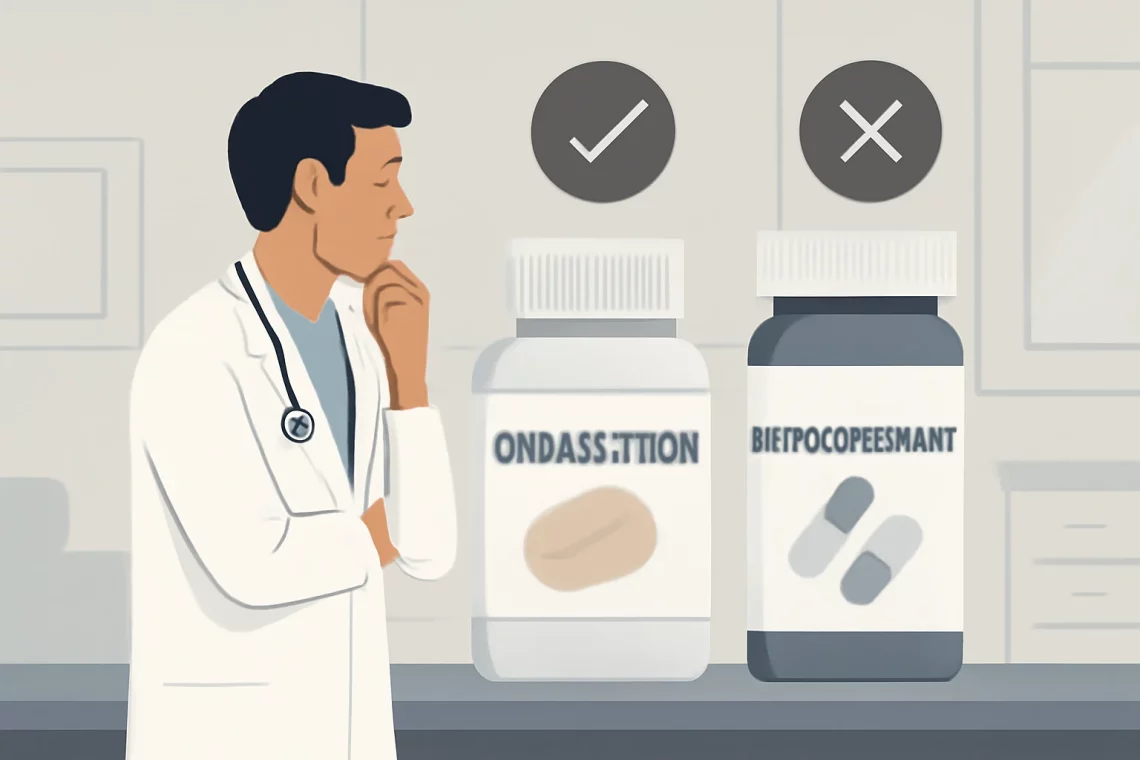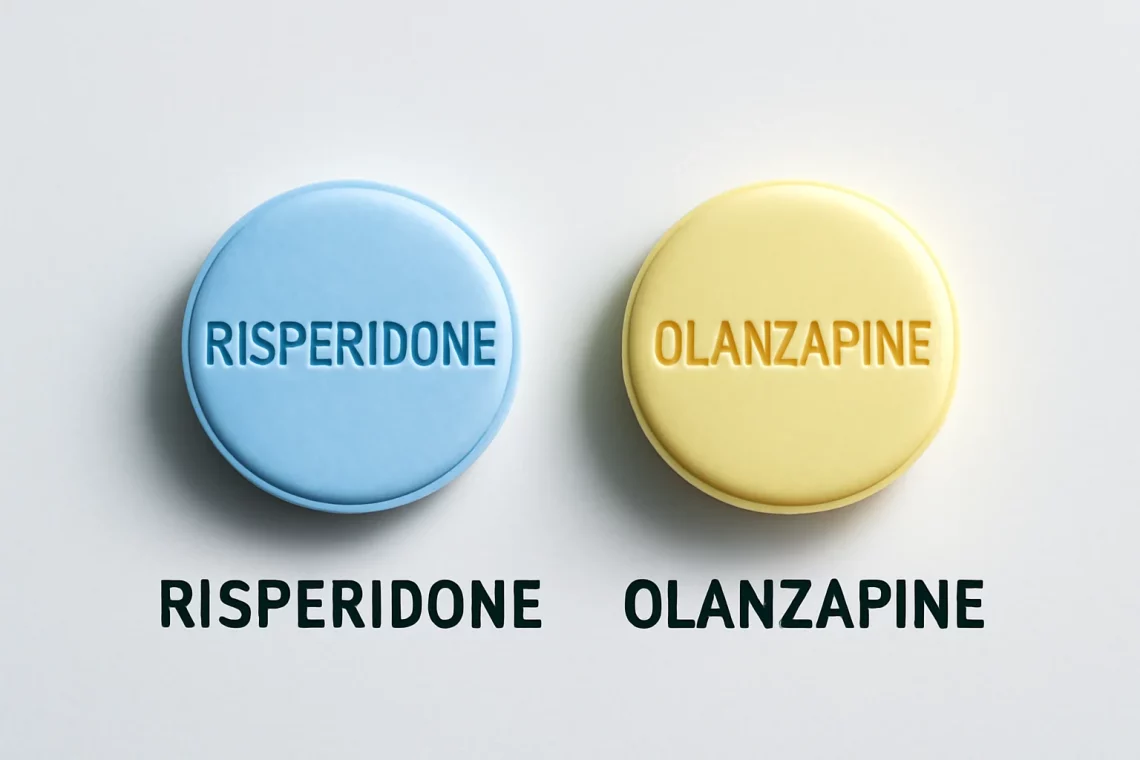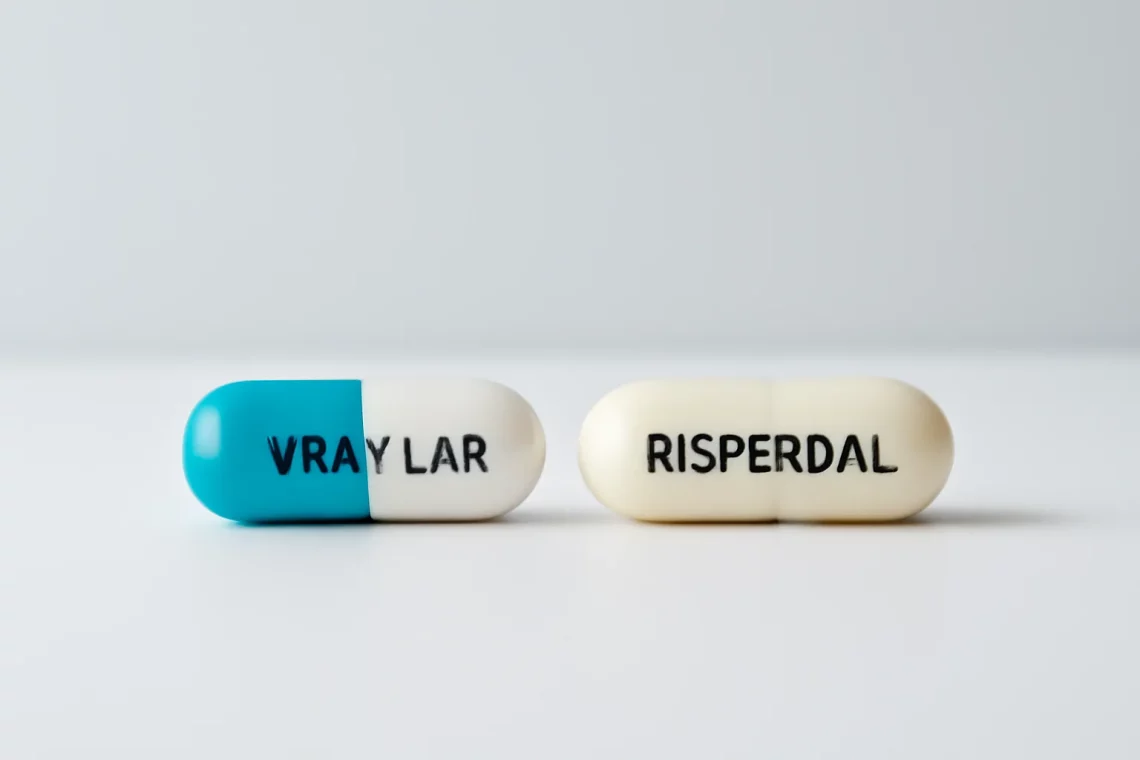-
Apixaban vs Warfarin: Choosing the Right Anticoagulant for You
Apixaban and warfarin are two anticoagulant medications commonly prescribed to prevent blood clots and reduce the risk of stroke in patients with certain medical conditions, such as atrial fibrillation and deep vein thrombosis. Both drugs serve the same primary purpose, yet they operate through different mechanisms and possess distinct characteristics that influence their use in clinical practice. Understanding the nuances between these two medications is essential for patients and healthcare professionals alike, as it can significantly impact treatment outcomes and overall patient safety. Anticoagulation therapy is pivotal in managing conditions associated with thromboembolic events. As healthcare continues to evolve, the choice between apixaban and warfarin has become a topic of…
-
Ondansetron vs Metoclopramide: Which is Better for Nausea Relief?
Nausea and vomiting are common symptoms that can arise from various causes, including medical conditions, medications, and even emotional stress. These symptoms can significantly impact a person’s quality of life, making effective management essential. In clinical settings, healthcare providers often utilize specific medications to alleviate these distressing symptoms. Two commonly prescribed medications for this purpose are Ondansetron and Metoclopramide. Both of these drugs serve to counteract nausea and vomiting, but they function through different mechanisms and are indicated for various conditions. Understanding the differences, benefits, and potential side effects of these medications can help patients and caregivers make informed choices about their treatment options. As healthcare continues to evolve, the…
-
Cephalexin vs Keflex: Understanding Their Differences and Uses
Cephalexin and Keflex are two terms that often arise in discussions about antibiotic treatments. For many, the distinction between these two names may seem trivial, but understanding the nuances can be crucial for effective treatment. Cephalexin is the generic name for a specific antibiotic that is classified as a cephalosporin. On the other hand, Keflex is a brand name under which cephalexin is marketed. This distinction is essential for patients and healthcare providers alike, as it influences prescription practices and patient education. Antibiotics like cephalexin play a vital role in modern medicine, helping to combat bacterial infections that can range from mild to severe. They work by interfering with the…
-
Risperidone vs Olanzapine: A Comprehensive Comparison for Patients
Risperidone and olanzapine are two commonly prescribed atypical antipsychotic medications used primarily to treat various mental health disorders, including schizophrenia and bipolar disorder. Both of these drugs have garnered attention for their effectiveness, but they also come with a range of potential side effects and considerations that patients and healthcare providers must weigh. The increasing prevalence of mental health issues globally has led to a growing interest in understanding these medications’ benefits and drawbacks. The nuanced mechanisms by which risperidone and olanzapine operate within the brain highlight the complexity of psychiatric treatment. Patients often find themselves at a crossroads when deciding which medication may be more appropriate for their condition.…
-
Risperidone vs Olanzapine: Choosing the Right Antipsychotic Treatment
Risperidone and olanzapine are two commonly prescribed antipsychotic medications that play a crucial role in the management of various mental health disorders. Both belong to a class of drugs known as atypical antipsychotics, which are often favored for their efficacy in treating symptoms of schizophrenia, bipolar disorder, and other psychiatric conditions. As mental health awareness continues to grow, these medications have gained significant attention, leading to numerous discussions about their respective benefits and potential drawbacks. The choice between risperidone and olanzapine can be complex, as it often depends on the individual needs of the patient, the specific symptoms being treated, and the side effect profiles of each medication. While both…
-
Spironolactone vs Eplerenone: Which Diuretic is Right for You?
Spironolactone and eplerenone are two medications that play a significant role in the field of cardiology and endocrinology. Both belong to a class of drugs known as aldosterone antagonists, which are primarily used to treat conditions associated with fluid retention and high blood pressure. While they share similarities in their mechanisms of action and therapeutic applications, they also exhibit distinct differences that can influence treatment decisions. Understanding the nuances between spironolactone and eplerenone is crucial for healthcare providers and patients alike. These differences can affect efficacy, side effects, and overall patient experience. As both medications work by blocking the effects of aldosterone, they help in managing conditions such as congestive…
-
Spironolactone vs Eplerenone: Which is Right for You?
Spironolactone and eplerenone are two medications that play significant roles in the management of various medical conditions, particularly those related to cardiovascular health and fluid retention. They belong to a class of drugs known as aldosterone antagonists, which are primarily used to treat conditions such as hypertension, heart failure, and certain hormonal disorders. Both of these medications work by inhibiting the effects of aldosterone, a hormone that regulates sodium and water balance in the body, leading to increased excretion of sodium and water while retaining potassium. Understanding the differences and similarities between spironolactone and eplerenone can be crucial for patients and healthcare providers alike. While they share a common mechanism…
-
Vraylar vs Risperdal: Understanding the Differences and Uses
Vraylar and Risperdal are two medications commonly used in the treatment of mental health disorders. They belong to a class of drugs known as atypical antipsychotics, which are designed to manage symptoms of conditions such as schizophrenia and bipolar disorder. Both medications have unique properties, efficacy profiles, and side effects, making them suitable for different patient needs. Understanding the intricacies of each medication is essential for patients, caregivers, and healthcare professionals. Vraylar, also known by its generic name cariprazine, has gained attention for its unique mechanism of action that targets specific dopamine receptors in the brain. On the other hand, Risperdal, or risperidone, has been a long-standing treatment option with…
-
Entresto vs Carvedilol: A Comprehensive Comparison for Heart Health
Entresto and Carvedilol are two medications commonly used in the management of heart-related conditions, particularly heart failure. Both drugs, while serving similar purposes, have distinct mechanisms of action and therapeutic effects. As heart disease remains one of the leading health issues globally, understanding the nuances between these two medications can be crucial for patients and healthcare providers alike. Entresto, a combination of sacubitril and valsartan, is a relatively newer medication that has gained attention for its ability to reduce hospitalizations and improve outcomes in patients with heart failure with reduced ejection fraction. On the other hand, Carvedilol, a non-selective beta-blocker with alpha-blocking properties, has been a staple in heart failure…
-
Allopurinol vs Febuxostat: Which is the Better Gout Treatment?
Gout is a form of inflammatory arthritis characterized by sudden and severe pain, swelling, and redness in the joints, often affecting the big toe. It occurs when there is an excess of uric acid in the bloodstream, leading to the formation of urate crystals in the joints. This condition can significantly impact the quality of life, making daily activities challenging and painful. As a consequence, managing gout effectively is essential for those affected by it. Two commonly prescribed medications for the management of gout are allopurinol and febuxostat. Both drugs serve to lower uric acid levels in the blood, thereby preventing gout attacks and facilitating better control of the condition.…







































